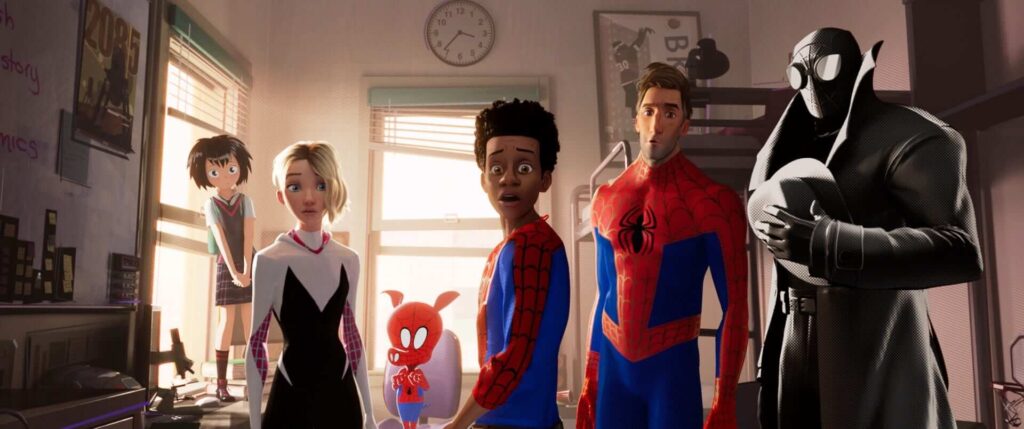by The Cowl Editor on January 24, 2019
Arts & Entertainment
by: Peter Keough ’20 A&E Staff
It is not uncommon in the realm of comic book movies to observe criticism of the repetitiveness of the genre. While powerhouses such as Marvel and DC are in the throes of building large-scale interconnected universes, releasing multiple box office smash hits a year, it is easy to become tired of these sorts of films. Arguably, no other hero has faced as much criticism as Marvel’s Spider-Man.
Starting with Sam Raimi’s Spider-Man from 2002 and ending with 2017’s Marvel Cinematic Universe film, Spider-Man: Homecoming, there have been seven live-action Spider-Man movies with three different actors playing the character in a span of 15 years. With reboot after reboot, both on T.V. through an animated medium and on the silver screen, the story of Peter Parker has been tread and re-tread time and time again. In 2018 alone, the hero featured in Avengers: Infinity War, an animated series, and his own video game. So how could another iteration of the Spider-Man story possibly break the mold it created for itself?

This question has been answered in outstanding fashion by the animated 2018 feature Spider-Man: Into the Spider-Verse. Produced by Phil Lord and Chris Miller of the Lego Movie acclaim, this revitalized take on the Spider-Man story is anything but a retreading of previous films. Instead of focusing on the classic Peter Parker story fans have come to know over the years, this film chooses to follow the life of Miles Morales, the Spider-Man of a parallel universe.
While much of Miles’ story does parallel that of Peter Parker, it is unique and fresh enough to provide the same super-heroic thrills while building a whole new world for viewers to become immersed in.
With a high-caliber cast providing voice acting, including the talents of Shameik Moore, Brian Tyree Henry, Mahershala Ali, Chris Pine, Liev Schreiber, Jake Johnson, Nicolas Cage, John Mulaney, and more, Spider-Verse molds this unique new story efficiently and breathtakingly throughout its runtime.
Interestingly enough, it is the precedent set by the earlier iterations of the Spider-Man story that allows Spider-Verse to flourish on its own. The movie is extremely meta, as it references almost every other representation of the character throughout his storied history. Through its ability to build upon the past while continually adding to Spider-Man’s future, this adaptation straddles the line between humor and emotional resonance, using this balancing act to thrive.
Spider-Verse also carves out its place in the Spider-Man canon with a diverse cast, its well-constructed and powerful soundtrack, and a comics-inspired animation style that won the film the Golden Globe for Best Animated Feature Film just a few weeks ago.
But the lasting impact the film creates comes from one of the main themes that it establishes and bolsters during the story: Miles is told at one point by a mentor that “Anyone can wear the mask.” Bryan Bishop of the Verge writes, “In this film, Spider-Man isn’t one particular person; it’s an idea accessible to anyone, no matter where they come from or what they look like.” This is where Spider-Verse is able to excel most; it proves that, while the film may be telling a familiar story, it does not have to be a carbon-copy of its predecessors.